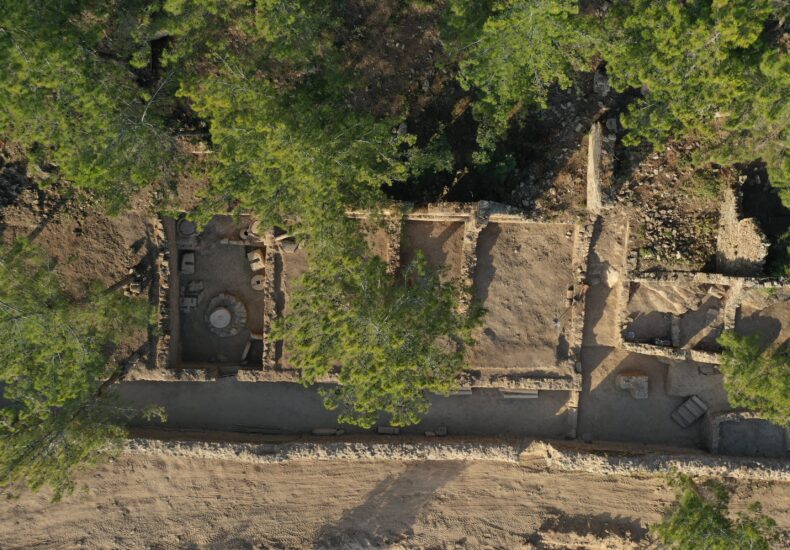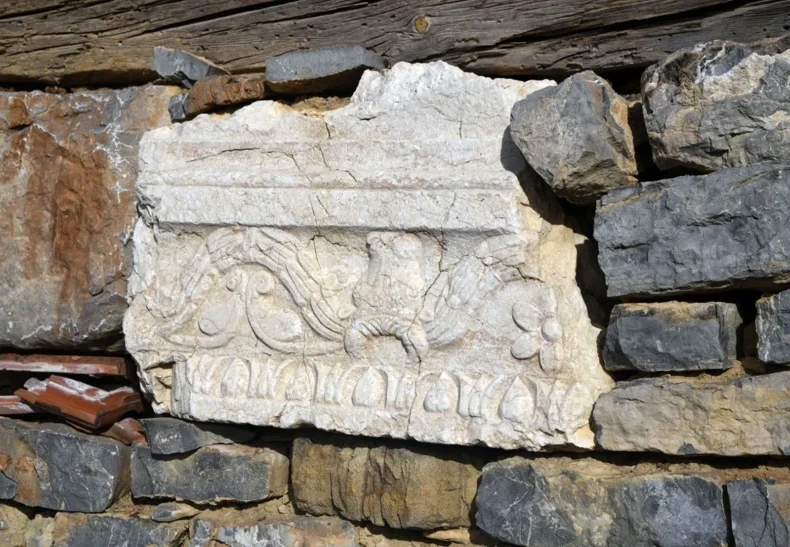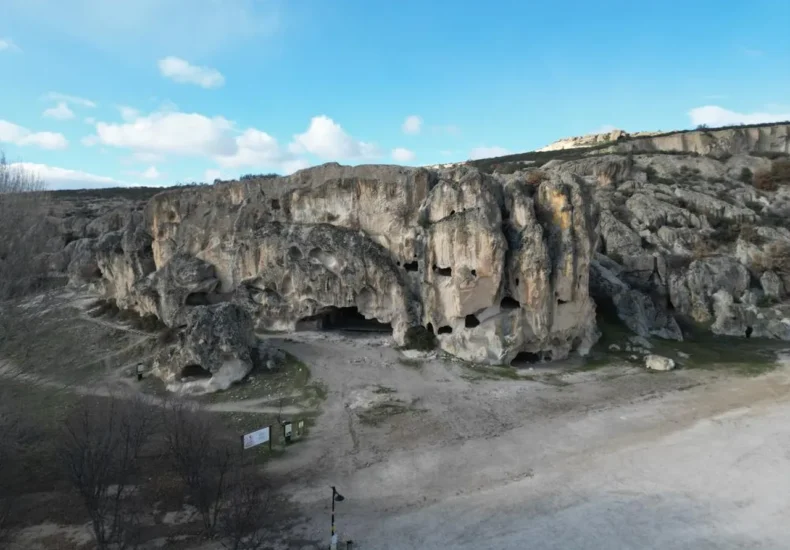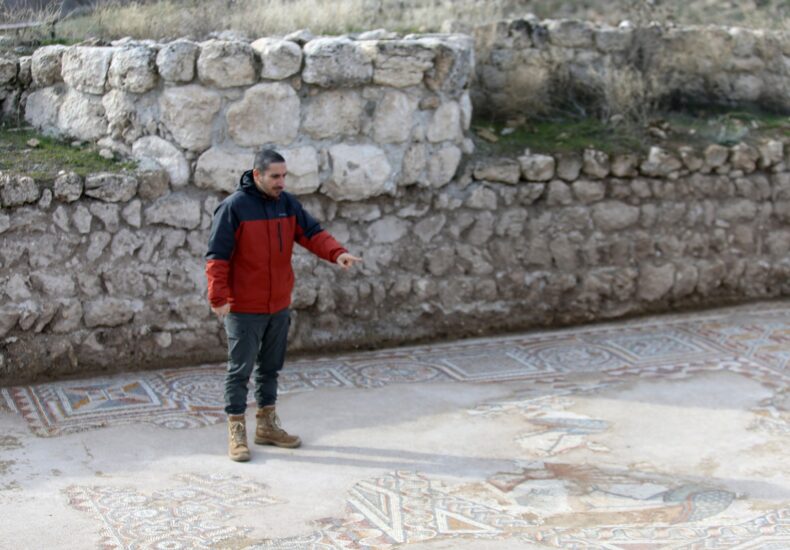
New 7.7-Million-Year-Old Fossils Unearthed in Central Anatolia: Kayseri Site Reveals Younger Species Remains
Fresh fossil discoveries in central Türkiye are offering new insight into Anatolia’s deep-time biodiversity. Excavations near the Yamula Dam locality in Kayseri have yielded 103 new fossil fragments during the 2025 field season—remains that researchers believe may belong to a younger species than those previously documented at the site. The finds come from the Çevril–Taşhan

Seljuk-Era Bronze Amulet Discovered at Ancient Lystra in Central Türkiye
Archaeological excavations at ancient Lystra, near Konya in central Türkiye, have revealed a Seljuk-era bronze amulet, adding a new dimension to the city’s already layered history. The triangular pendant was uncovered inside what archaeologists believe to be a Seljuk-period residential structure — alongside material evidence linked to Christian communities living under Seljuk rule. The excavations

International Research Grant Brings Syedra Ancient City’s Theater into the Global Archaeological Spotlight
A major international academic partnership has elevated archaeological research at Syedra, as a joint Turkish–French project led by Alanya Alaaddin Keykubat University receives competitive bilateral funding under the Bosphorus Programme.The project is notably the first international bilateral research initiative in the university’s history—marking a milestone for both the institution and the archaeological study of southern

Over 100 Olive Oil Workshops Reveal Syedra’s Role as a Late Antique Production Hub
In the steep coastal hills of southern Türkiye, the ancient city of Syedra Ancient City is revealing a side of urban life rarely seen so clearly in Late Antiquity. Archaeological excavations have identified more than 100 olive oil workshops dating to the 5th–6th centuries AD, indicating that Syedra was not merely a residential settlement but

Late Roman Mosaic with Protective “Solomon’s Knot” Discovered at Ancient Smyrna
Archaeologists working in the center of modern İzmir have uncovered a rare Late Roman mosaic floor featuring the Solomon’s knot, a symbol long associated with protection against misfortune and the evil eye. The discovery was made during ongoing excavations at Smyrna, one of western Anatolia’s most important Greco-Roman urban centers. Found along Smyrna’s main ancient

7,500-Year-Old Stone Seal Unearthed at Tadım Höyük in Eastern Anatolia
Archaeologists excavating Tadım Höyük, a multi-layered settlement mound in eastern Anatolia, have uncovered a rare stone seal dating back approximately 7,500 years, offering new insight into early social organization along the Upper Euphrates Basin. The discovery reinforces the region’s role as one of Anatolia’s earliest and most enduring centers of human settlement. The excavations are

Villagers Used Stones from a Zeus Temple to Build Their Homes
In northern Anatolia, the remains of an ancient Roman sanctuary have resurfaced in a way few would expect. In the Daday district of Kastamonu, villagers once took stones from a temple dedicated to Zeus and reused them in the construction of their homes, embedding fragments of a sacred monument into everyday domestic architecture. The site

At Nysa, the Road to Knowledge Emerges Again: 1,800-Year-Old Steps to a Roman Library Revealed
In the early hours of the excavation season, as the soil was carefully lifted from a Roman street in western Anatolia, a forgotten route resurfaced — one that once led directly to knowledge itself. At Nysa Ancient City, archaeologists have uncovered a set of marble steps dating back roughly 1,800 years, revealing how ancient visitors

A 3,000-Year-Old Rock-Cut Toilet in the Phrygian Valley Is Attracting Visitors’ Attention
In the heart of western Anatolia, the Phrygian Valley continues to surprise visitors not only with its monumental rock façades and ancient sanctuaries, but also with striking details from everyday life. One of the most talked-about features in recent years is a 3,000-year-old rock-cut toilet, carved into a multi-story structure in the Ayazini area of

Late Roman Palace Hall with Rare Mosaics Discovered at Hadrianopolis in Northern Anatolia
The moment archaeologists lifted the soil, the floor answered first—a near-intact mosaic field, still crisp enough to read like a visual statement of power. At Hadrianopolis, the ancient city in Karabük’s Eskipazar district in northern Anatolia, excavators have uncovered a mosaic-paved reception hall interpreted as part of a palace-like complex. The Find: A Formal Reception
